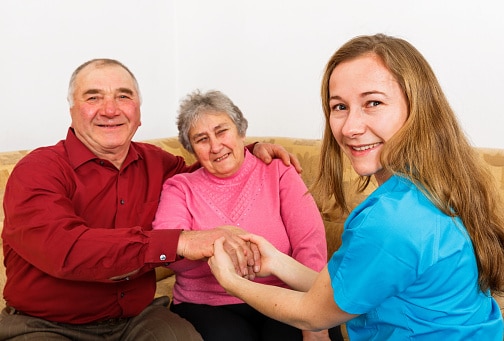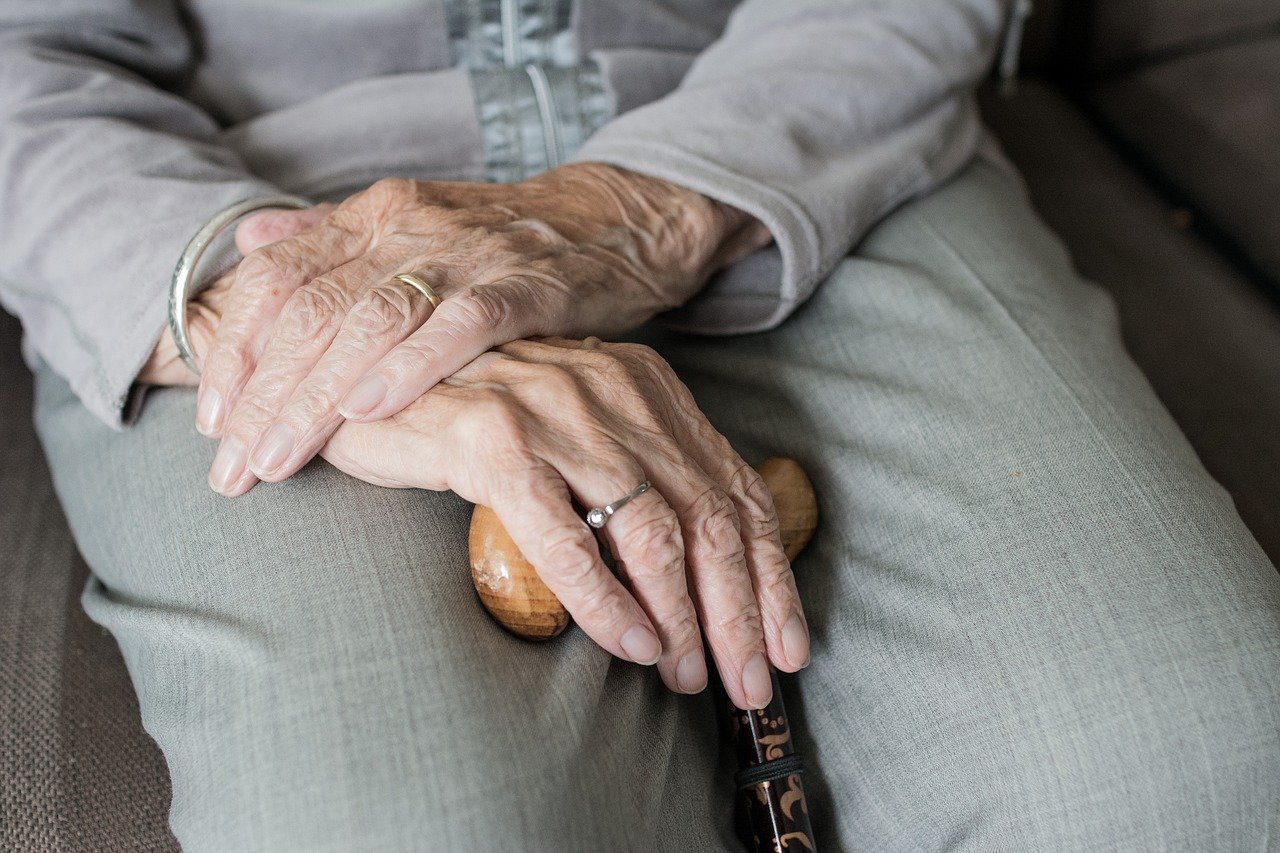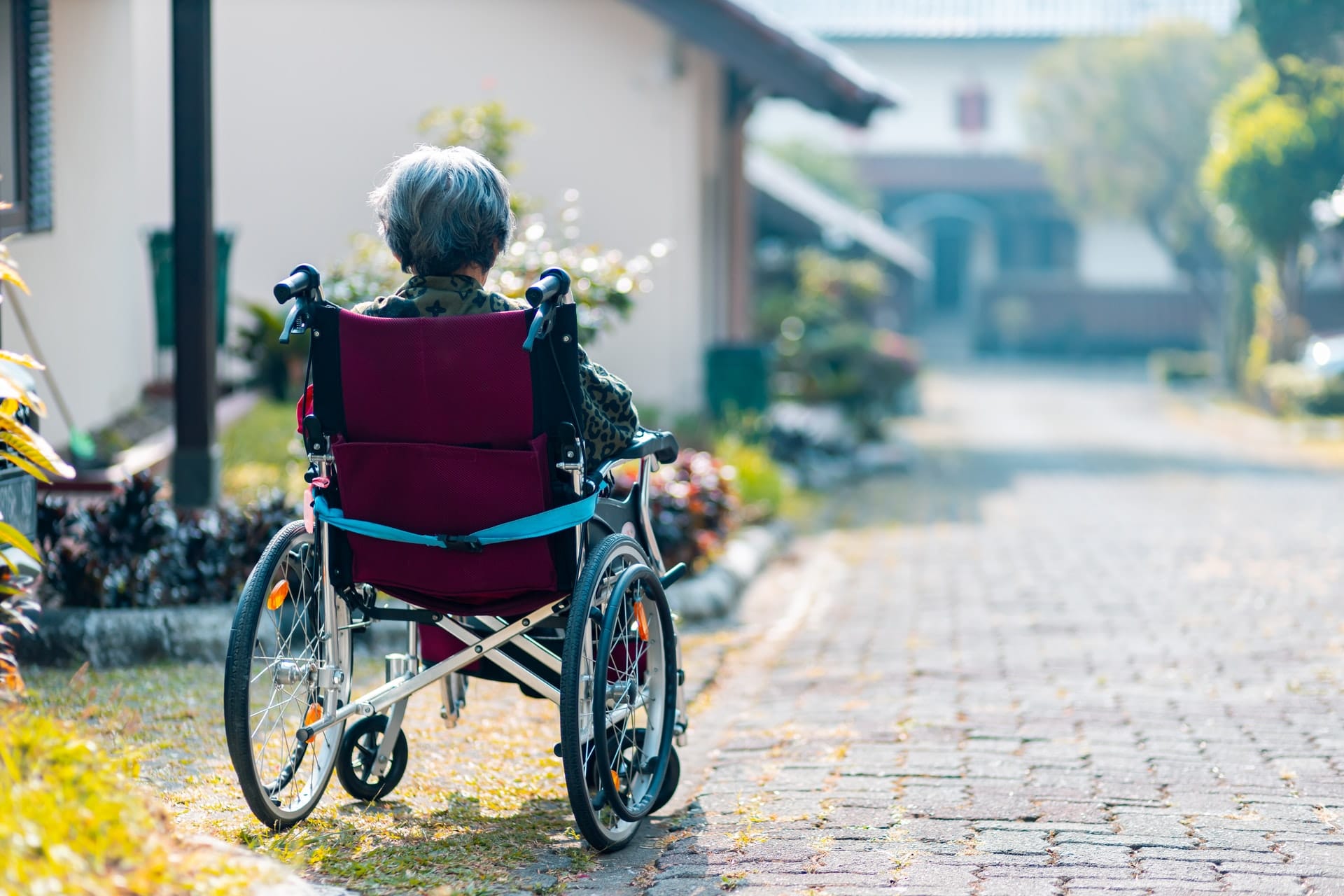
Loss of Appetite in Seniors
This article has been medically reviewed by Dr. Martin Duggan in 2021.
This content is not intended to be a substitute for professional medical advice, diagnosis, or treatment. Always seek the advice of your physician or another qualified health provider with any questions you may have regarding a medical condition.
Loss of appetite is a common issue faced by seniors. Whether living at home with help or living in a facility, the ability to desire and enjoy food is enormously important to a person’s quality of life. Chronic loss of appetite can lead to weight loss and nutritional deficiencies. Unsurprisingly, low weight and malnutrition are associated with poor healthcare outcomes and an increased risk of mortality.
Understanding some of the most common causes of reduced appetite and knowing how to address them can empower seniors and their caregivers. With this knowledge, we can devise strategies to promote appetite and increase food intake. This article will outline some of the major causes of appetite loss, the dangers that poor food intake poses to seniors, and what to do when your elderly loved one has a decreased appetite.
Note: This article is intended for informational purposes only. It is not intended as a substitute for medical advice from a licensed healthcare professional. Whenever possible we have made an effort to underscore the importance of working together with a doctor for the treatment of any medical problem. If you think that you or a loved one is suffering from appetite loss or other medical problems, or if you have questions, you should call your doctor right away.
What can cause loss of appetite in the elderly?
The changes that occur within the body as we age may contribute to decreased appetite. These changes that impact or impair appetite include dental problems, diminished saliva production, and hormonal changes. Appetite is also strongly influenced by a person’s surrounding environment and mood. Therefore, many of the psychological and social changes that can occur with aging will influence and negatively affect appetite.
In this article, we will set aside the topics of trouble swallowing, or dysphagia, as it has been covered in our other articles.
A brief word on psychosocial factors
Appetite is strongly influenced by an individual’s environment and mood. Therefore, many of the psychological and social changes that can occur with aging will influence appetite. Depression is known to impair appetite and is common in older people, thus a contributing factor in elderly appetite loss. Living and eating alone can cause reduced appetite, possibly because those who have difficulties with shopping and cooking lack support to overcome these problems and become less motivated to cook and eat. Additionally, eating alone may be less pleasurable, and people living alone have fewer social cues to eat.
Can any of these causes be reversed? Let’s take a closer look at some of these problems and see if there are any clever solutions. Later we will touch briefly on some causes which are more difficult to treat.
Reversible causes of appetite in seniors
Dental
Dental problems, at any age, necessitate a trip to the dentist. Without strong – and firmly fixed – teeth or dentures, the ability to chew and enjoy most foods disappears. If meals become a painful or frustrating experience, our brain responds by decreasing our drive to eat. If any of us have had braces or other complex dental work done in our lives, we may empathize with someone who has become disenchanted by hard or crunchy foods.
Fortunately, many dental issues have workable solutions. Sensitive teeth can be treated with toothpaste containing potassium-nitrate. Poorly fitting bridges, implants, or dentures can be adjusted or replaced. For many seniors, the search for an explanation for poor food intake begins and ends at the dentist’s office.
Beyond the teeth, it’s estimated that up to one-third of people over the age of 65 have reduced saliva production. This frequently causes difficulty or pain during swallowing. The most common cause of dry mouth in seniors is medication. For this reason, anytime there is concern regarding food intake, a careful review of medications should be done. If the offending medication can be stopped, then your doctor will most likely stop it. If the medicine is needed, sometimes doctors will offer special mouth sprays, rinses, or gels which can help keep things moist.
Constipation
At the other end of the GI tract, constipation can cause reduced appetite by slowing the movement of food through the GI tract. When severe, the densely packed contents of the colon can cause a backlog all the way to the stomach. If the stomach cannot empty frequently, it becomes distended. This sends powerful signals to the brain causing disgust or even nausea at the sight of additional food. The colon’s ability to distend and accommodate enormous amounts of stool is remarkable. In elderly patients, it is not unheard of for the colon to house the accumulated stool of well over a month’s worth of meals.
Constipation is a scourge for many seniors. It can lead to issues with continence, worsen irritative bladder symptoms like urgency of urination, increase the risk for urinary tract infections, and even cause abdominal pain that is much more severe than most caregivers would guess. There are a host of problems that will not improve until constipation is addressed.
The goal for every adult, regardless of age, should be at least one, daily, soft, bowel movement containing foods eaten within the last 24 hours. Just because someone goes to the bathroom every day, or has liquid stool, does not mean that hard stool isn’t sitting in the colon slowing things down and causing problems. A good test is the corn test. If we eat corn on Monday, it should be in our stool on Tuesday. If it isn’t, then our constipation isn’t fixed.
Of course, constipation is treatable! It may seem silly to devote an entire doctor’s appointment to such a low stakes problem. However, there are numerous benefits of having regular bowel movements.
Constipation is most often treated in 2 phases. Phase 1 is the “clean out” phase. Here, your doctor will often prescribe an aggressive regimen of a gentle bulk-forming osmotic laxative like Miralax with the addition of other stimulant laxatives like Dulcolax. These cleanouts require planning beforehand and monitoring throughout in order to avoid dehydration or electrolyte problems. Phase 2 is the “maintenance” phase. Here, lower daily doses of laxative medications and/or fiber-containing foods will be started and increased until the corn test is passed. Things can be reassessed periodically from time to time.
Many times, once the gut is happy, appetite issues and hosts of other stubborn problems completely disappear.
Irreversible causes of appetite in seniors
The smell of food stimulates appetite and taste promotes the enjoyment of food, leading to a stimulated appetite during eating. Seniors can develop an impaired sense of smell and taste, which then leads to a loss of appetite. Seniors with poor vision are more likely to report poor appetite as visual impairment is increasingly common with age. Being unable to see your food, surroundings, or company can have a negative impact on eating and appetite.
An acute or chronic illness or infection can impair one’s appetite. Many chronic diseases can also suppress appetite, and these include cardiac failure, chronic obstructive pulmonary disease, renal failure, chronic liver disease, Parkinson’s disease, and cancer. These conditions are more prevalent in seniors.
Impaired dexterity can make eating a more frustrating process. When we struggle to use utensils, food takes longer to eat and may go cold. Lowering the temperature of food impairs the ability of taste buds to identify sweetness. We can sometimes improve this with careful attention to the “how” of eating. There are adaptive utensils that are designed for diseases like Parkinson’s Disease. However, ultimately most problems in this category are stubborn and difficult to reverse.
Chronic pain is a common ailment amongst seniors and is associated with poor appetite due to it causing overall discomfort. More serious conditions including thyroid disorders, hepatitis or chronic liver disease, kidney failure, and cancer can all be reasons for appetite loss.
Other methods to stimulate appetite in seniors
If a doctor feels it is appropriate, appetite can be stimulated with medications including megestrol acetate, certain hormonal therapies, or even medical cannabis. There is no shame in asking a doctor about these medications. Even if our goals have become centered around palliative rather than curative measures, we should remember that appetite is a symptom that may require palliation. It is only when death is very close that appetite is no longer a consideration during hospice care.
Setting a schedule for meals makes it a routine and part of yours or your loved one’s day. Breakfast, lunch, dinner, and snacks should be served at the same time throughout the day, every day of the week. Consistency will help with both psychological and physiological reasons for appetite loss.
You can also consider the loss of dexterity. The frustration of not being able to use a spoon, fork, or knife could make some older adults not want to eat at all. Try foods that can be eaten without utensils or using adaptive utensils. Soups, milkshakes, and smoothies are good alternatives if mouth and teeth issues are a consideration. These can be nutritious and flavorful and can be adapted to make sure vitamin, mineral, and caloric needs are being met.
It is evident that there are several reasons why seniors may be suffering from appetite loss and the potential ramifications. It is important to try and identify the root cause if the issue, and know what methods can be tried in order to help someone regain their appetite.
Sources and Further Reading:
- Lee, Kyung Ah et al. “Nutrient intakes and medication use in elderly individuals with and without dry mouths.” Nutrition research and practice vol. 14,2 (2020): 143-151. doi:10.4162/nrp.2020.14.2.143
- Assistive Devices, www.parkinson.org
Related Articles

When Is It Time for Assisted Living?
Wondering if it is time for assisted living for your loved one is a common question for caregivers. As a caregiver, you might have been considering the question for months or possibly even years. Your loved one might have declined to continue the discussion as the thought of moving out of their family home and […]

All About Adult Day Care: Community and Costs
Adult day care is a fairly new concept for caregivers. The basic idea is to provide a secure place where seniors can enjoy social activities during the day and be provided nursing care as needed. It’s a hybrid model of eldercare that prioritizes community. At the same time, seniors get help with common custodial tasks […]

An Overview of Senior Rehabilitation Centers
Recovering from injury or illness in your golden years may take time and support. That’s where senior rehabilitation centers become essential. If you need a temporary stay to recover from injury or illness, senior rehabilitation centers can be the solution to get expert care and daily support. In this article, we’ll give you an overview […]

A Caregiver’s Guide to ADLs and IADLs
This article has been medically reviewed by Dr. Martin Duggan in 2021. This content is not intended to be a substitute for professional medical advice, diagnosis, or treatment. Always seek the advice of your physician or another qualified health provider with any questions you may have regarding a medical condition. As a family caregiver, your […]

What is a Mechanical Soft Diet? Explanation, Preparation, and Meal Ideas
This article has been medically reviewed by Dr. Martin Duggan in 2021. This content is not intended to be a substitute for professional medical advice, diagnosis, or treatment. Always seek the advice of your physician or another qualified health provider with any questions you may have regarding a medical condition. As a caregiver, you may […]

Benefits for Seniors with Disabilities
Oftentimes, seniors with disabilities qualify for health and financial assistance programs. However, they may be unaware of them or are confused about the eligibility requirements and enrollment process. Let’s go over the key programs for seniors with disabilities so that you have the information you need to get the benefits you deserve. Note on the 3 […]